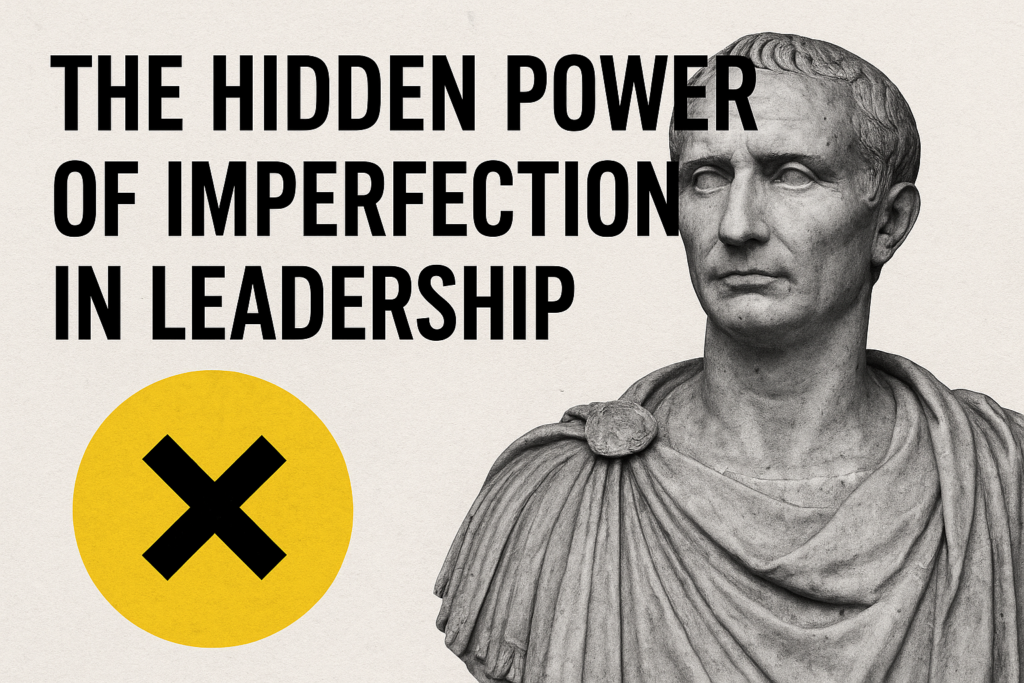Why Perfection Breeds Resentment

Perfection may seem like the ultimate goal—flawless execution, unmatched skill, and an image that inspires awe. But history shows us that appearing too perfect can be just as dangerous as failure. Human nature is wired with envy, and when you seem untouchable, others will often work tirelessly to bring you down.
The real art of influence is not about eliminating flaws, but about embracing humanity. A carefully revealed imperfection makes you relatable, builds trust, and shields you from unnecessary envy.
Why People Resent Perfection
- Perfection Creates Distance – When you appear without weakness, others feel inferior and excluded.
- Envy Fuels Opposition – Those around you may plot against you simply because your perfection threatens their sense of worth.
- Flaws Build Connection – People admire strength but connect with vulnerability. Showing some humanity makes you approachable.
By softening your edges, you not only disarm envy but also gain stronger loyalty from those who see you as “like them.”
Julius Caesar and His Calculated Imperfections

Julius Caesar, one of history’s greatest leaders, understood this principle well. Despite his brilliance, he made sure to show moments of humanity that kept people connected to him.
For instance, Caesar often highlighted his occasional health struggles, including reported epileptic episodes, rather than hiding them. This vulnerability made him seem more human in the eyes of his soldiers and the Roman people. They admired his strength even more because he carried greatness alongside visible flaws.
By balancing excellence with imperfection, Caesar avoided the trap of appearing godlike—a trait that had doomed leaders before him.
The Psychology Behind Relatable Flaws
- The Pratfall Effect – Studies in psychology show that people find high-performing individuals more likable when they make small mistakes. It humanizes them.
- Mirror of Humanity – When leaders reveal vulnerability, followers feel validated in their own imperfections.
- Trust Through Authenticity – People trust those who appear real. Perfection feels staged, but imperfection feels honest.
Modern Example: Elon Musk’s Awkwardness as Strength
Elon Musk, one of the most influential figures in technology, often stumbles during interviews, cracks awkward jokes, and sometimes struggles with public speaking. Yet, these very flaws make him relatable and believable.
Instead of being seen as a cold corporate figure, Musk’s imperfections humanize him. His brilliance in innovation is undeniable, but his awkwardness shows he’s not perfect—and people admire him all the more for it.
Why Flaws Build Stronger Leadership
- Relatability – People follow leaders they see as human, not untouchable idols.
- Protection Against Envy – Revealed flaws act as a shield, softening jealousy.
- Stronger Loyalty – Imperfections invite compassion and deepen bonds.
- Room for Growth – By acknowledging weakness, you create space for learning and self-improvement.
Practical Ways to Avoid Appearing Too Perfect
- Share Struggles Selectively – Reveal past challenges that shaped your success.
- Acknowledge Mistakes – Admitting when you’re wrong earns respect, not weakness.
- Use Humor About Yourself – Light self-deprecation shows humility without undermining confidence.
- Highlight Team Contributions – Spread recognition to others, rather than positioning yourself as flawless.
- Balance Excellence With Humanity – Deliver strong results but let small flaws show naturally.
Signs You Might Be Appearing Too Perfect
- You never admit mistakes, even small ones.
- People admire you but keep their distance.
- Colleagues seem envious rather than supportive.
- You constantly feel the need to defend your position.
If these resonate, you may be inviting hidden resentment.
Why This Strategy Matters in the Age of Social Media
In today’s curated digital world, people often present a flawless image online. Yet audiences crave authenticity. The most successful influencers and leaders are those who share their struggles along with their wins.
Appearing too perfect may attract admiration—but it rarely builds loyalty. A touch of imperfection makes you unforgettable.
Conclusion: Power in Imperfection
True influence does not come from projecting an impossible image of perfection. It comes from showing strength and humanity. History, psychology, and modern leadership all prove that perfection breeds envy, while flaws build connection.
By revealing just enough imperfection, you disarm jealousy, strengthen loyalty, and make your success sustainable. The lesson is clear: it’s not about being flawless—it’s about being real.
